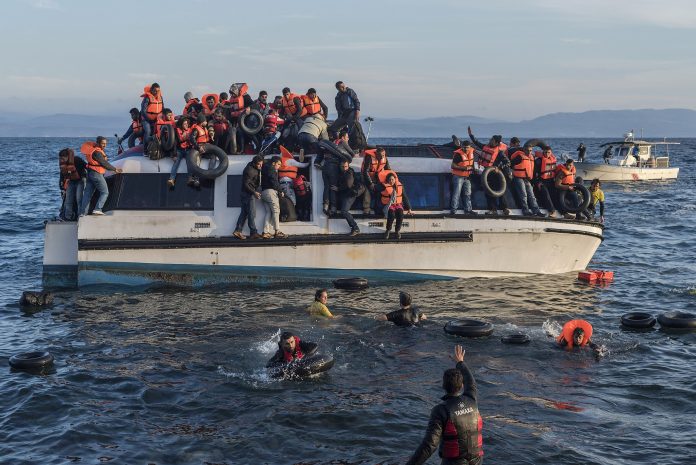The mini-Summit on migration, presented as an important step towards a European agreement on how to address mass arrivals from Africa and Asia, rendered rather poor results. Once more, European leaders moved reluctantly, evading the root causes of the problem and opting for the less unpleasant action against undocumented migrants arriving on European soil.
In other words, they decided to sweep the rubbish under the carpet.
In some EU member states, elections are looming. In other member states, government coalitions are not very stable and all together they will front the European elections next year.
But the arrival of migrants and refugees will continue, some times in diminished numbers and some times en masse. And this is because poverty, war, exploitation, total lack of security and endemic corruption will continue in the areas that generate mass migration.
Around our Europe, in Turkey, Jordan and Kenya, there are some of the world’s biggest and more populated refugee camps. Environmental problems such as draughts, floods and deforestation provoke extensive human movements. Unemployment, deep poverty and overpopulation push Africans and Asians to search for a better future. Local wars, tribal clashes, fundamentalism and human trafficking, together with the corrupt political leaderships, completes this gloomy picture.
That is because we cannot stop with violence the migratory stream towards the safest EU lands.
As such, this problem must be addressed at its root. But this is costly and presupposes a global action that could hurt corrupt leaderships in Asia and Africa and the interests of many Western companies as well. In brief, migration can be reduced with more food, jobs and security in these areas.
A dangerous encounter
But what was most worrying after the mini-Summit is the dangerous encounter between conservatives and far right that emerged.
For many years, the far right invested on terror and insecurity. Migrants are pawns and easy targets, mainly because the electorate of such parties comes from the degraded and poor areas. Unemployment, social hatred and identity crises are problems left unresolved by mainstream parties and gradually became a pool of votes for any kind of far right politician.
Conservatives, as in Bavaria, Austria, Denmark, the Netherlands, the Czech Republic, felt threaten by the electoral success of anti-migration rhetoric and rushed to adopt part of it. Others, as in Hungary, Slovakia, Slovenia and Bulgaria, came so close to far right proposals and arguments that in many cases it is difficult to distinguish them from the far right in their country.
But the main target of the far right is not the migration wave. It is the European Union and the idea for further integration. They want to preserve their national states for their privileged elites.
It is true that many among the Conservative leaders are growing more and more sceptical about the future of the EU and the necessity of a Union based on its founding principles. Many are openly in favour of the abatement of the links that keep EU member states together. The target of the reinforcement of their national states is gaining increasing support among them.
In the countries of Central and East Europe, for instance, despite the fact that they absorb the biggest part of EU funds – generating scandal after scandal for Olaf to investigate, the conservative politicians are against the main idea of European unity.
This is the real danger facing the EU now. It is not migration. Instead, migration is an issue being used to topple the European idea.
P.S. The recent decision to create camps for migrants in Italy should not be accepted with joy, since there is a very bad precedent. The involvement of Italian organised crime networks in the management of existing camps and the exploitation of migrants and refugees in poor paying agricultural jobs and by forced prostitution rings are major concerns. Last year, members of a Calabrian ‘Ndrangheta, a mafia-type organisation, were arrested after it was discovered they had been running a camp in Isola Capo Rizzuto for more than 10 years. According to official statements, the group pocketed a third of the € 100m EU subsidies allocated to the camp.

